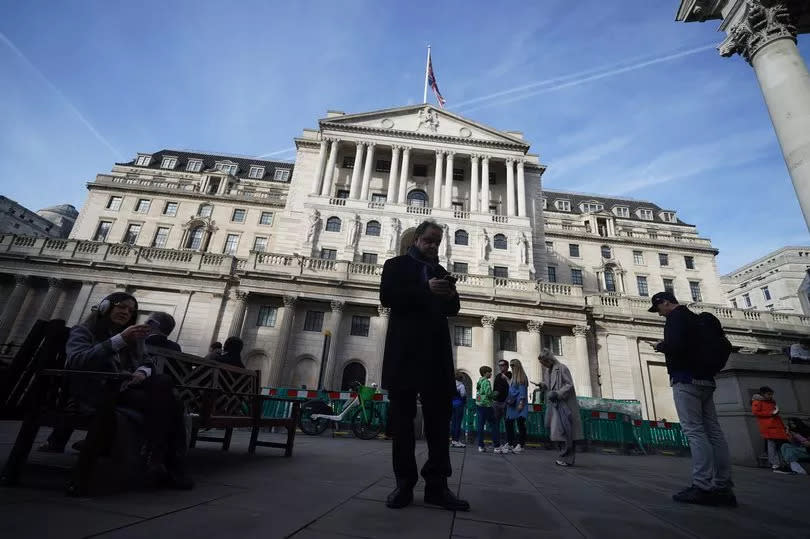Bank of England issues warning as 3 million households set to face huge rise in mortgage costs

The Bank of England has warned that approximately three million UK households are likely to experience increases in their mortgage repayments over the next two years. The Bank's Financial Policy Committee (FPC) stated that this would include "very large increases" of more than 50 percent for around 400,000 households.
However, the central bank emphasised that UK lenders remain well-positioned to support households and businesses, even if economic conditions deteriorate. The Bank's most recent Financial Stability Report revealed that the majority of households have already seen an increase in their mortgage rates since borrowing costs began to rise significantly in 2022.
Interest rates currently stand at a 16-year high of 5.25 percent, with the central bank deciding to maintain this rate for a seventh consecutive meeting earlier this month. Despite this, many economists anticipate a reduction in rates at the next vote in August.
READ MORE: The latest rent prices in every Greater Manchester borough - from most to least affordable
Currently, around 35 percent of households with mortgages, equating to more than three million, are paying below 3 percent and are predicted to see an increase between now and the end of 2026.
A typical household coming off a fixed-rate mortgage before the end of 2026 is expected to face a jump of around £180 a month, according to the report.
The report also noted that an "increasing proportion" of households have been opting to borrow over a longer period of time, which reduces monthly repayments but leaves them with more debt to service over time. The Bank has observed that higher mortgage rates are causing many households and renters to dip into their savings.

It noted an uptick in the proportion of renters falling behind on payments, with 16.5% in arrears in the first quarter of 2024, a slight increase from 15.7 percent the previous year, following substantial annual rent hikes.
According to survey data, "many renters and low-income households intend to run down their savings even further" over the next year to cope with rising living costs.
Despite the squeeze on household finances, the central bank maintains that the overall risk landscape for the economy and financial sector remains stable.
The Financial Policy Committee (FPC) asserts that the banking sector is robust enough to support households and businesses, even under economic and financial conditions far tougher than anticipated.
However, the FPC warns of "global vulnerabilities" within the sector, highlighting "policy uncertainty" due to forthcoming elections in key countries such as the UK, the US, and France.

 Yahoo News
Yahoo News 
